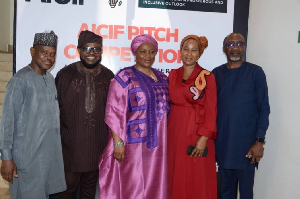The 2025 African International Conference on Islamic Finance (AICIF) Pitch Competition says 20 promising start-ups are competing for N5 million in grant funding.
Ummahani Amin, the convener of AICIF in Nigeria, said Africa is fostering a new generation of ethical, impact-driven enterprises through the AICIF Pitch Competition.
Amin explained that the competition, held in Abuja on Saturday, drew over 200 applicants from across the continent and shortlisted 20 finalists, comprising 10 tech innovators and 10 social impact-focused start-ups.
“Today, we celebrate creativity, resilience, and the power of ideas. These young entrepreneurs are not just pitching businesses; they are presenting the future of Africa,” she said.
“The solutions here have the potential to create jobs, reshape industries, and drive social impact.”
The convener said the start-ups, ranging from halal-tech solutions to ethical investment platforms, were assessed by a panel of judges on innovation, scalability, and alignment with Islamic finance principles.
At the event, Abdulkadir Abbas, director at the Securities and Exchange Commission (SEC), said the quality of pitches was impressive.
“The passion, commitment, and innovation displayed are remarkable. It will be a tough task for the judges to choose winners. What we are witnessing here is the very essence of ethical entrepreneurship,” Abbas said.
The director explained that the SEC has frameworks in place that enable small businesses to access funds through crowdfunding and other Sharia-compliant investment products.
Yinlaifa Edolo, managing director of Metropolitan Skills Ltd, said the competition aims to empower young entrepreneurs with ethical tools for building sustainable enterprises.
“This grant is not about loans or debts. It is about giving startups breathing space to innovate, scale, and build businesses aligned with fairness and social responsibility,” Edolo said.
On his part, Abimbola Ajinibi, associate director at First Trustees, said small businesses are the backbone of Africa’s economy, but they often lack access to affordable capital.
Ajinibi added that using halal finance instruments like Waqf, Sukuk, and ethical crowdfunding, can help small businesses grow without the burden of exploitative interest rates.
Business News of Monday, 29 September 2025
Source: www.thecable.ng













